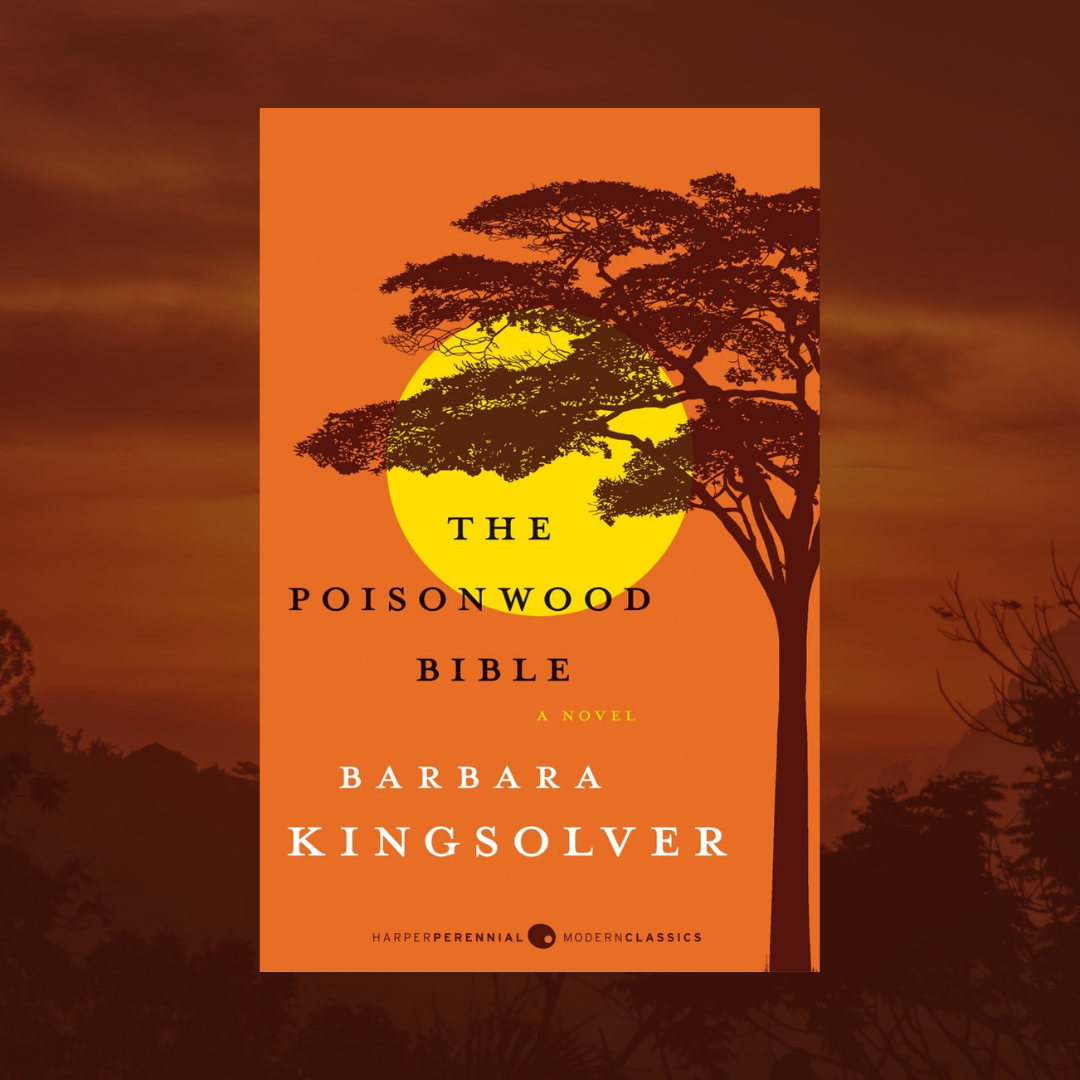Spoiler-Free Review
If you enjoy historical fiction, family dramas, religious commentary, and real-world geopolitical context, you’ll love The Poisonwood Bible.
What’s The Poisonwood Bible about?
In the 1950s, the Price family moves to the Congo as Baptist missionaries, but they’re unprepared for the reality of life in the remote village of Kilanga. Told from the perspectives of the mother and four daughters, we follow the Prices through the year of their mission and the aftermath in the decades to come.
This is an important and poignant story.
“God doesn’t need to punish us. He just grants us a long enough life to punish ourselves.”
Every time I picked this book up while sitting in my comfortably air-conditioned house in Texan suburbia, I felt transported to a hot, unforgiving jungle of vines, snakes, mosquitos, sweat, and red clay soil. I could hear the buzzing of insects and mothers in the distance calling to their children. It took me two months to complete this book, and not because it was too slow, but because I wanted to take my time with it.
This book came out over 25 years ago now, and it stands the test of time. The lessons are the same all these years later, and the writing is some of the best I’ve encountered in recent memory. It’s moving and confronting – the author did not pull punches, and I respect that.
One of the things I appreciated most about this story is that it felt honest. Every character had strengths and flaws, who cast their own moral judgments on their narratives. No one was better, more capable, more intelligent, or more enlightened than anyone else – they were profoundly human. And on that note, each point-of-view character had a very distinct voice.
This was also a story of contrasts. For every depiction of one type of person or situation, we could see the opposite in someone else. The father, Nathan Price, is an extreme sort of preacher, of the fire and brimstone variety who’s obsessed with baptizing the locals – but by contrast we meet Brother Fowles, a missionary who preaches love and is loved in return. One of the daughters, Adah Price, has a physical disability that causes a limp and which her family sometimes alienates her for, and by contrast we have Mama Mwanza, who has no legs and scoots everywhere but is accepted by her village without question. We also have the Price children’s innocence and lack of responsibility; they play and behave much like the local sons, which is contrasted against the local daughters’ parentification, some of whom have babies of their own already.
It provides a lot of food for thought and puts the reader in a frame of mind to question everything we accept as “normal.” The story starts just before they leave for Africa, in an America that’s very familiar to us, and then we experience the slow painful stripping of materialism and expectation alongside the Price family. By the end, we’re so entrenched that looking up from the book is like seeing our world with new (appreciative) eyes.
I greatly enjoy stories that can make you think, and take you to a place and time you’ve never experienced, and this hit the nail on the head in that regard.
RE: Critical Reception
In reading some other reviews, I do find it interesting that one of the primary criticisms is supposedly the book’s portrayal of Christianity, and missionaries in general. It is my view that no one’s culture or beliefs were glorified in this story, only the truth for everyone – warts and all (see my earlier point about contrasts). Some people just don’t like to have their warts pointed out, I guess.
In my edition of the book, there’s an author interview in the back, and here’s what she had to say on the matter:
“It aroused ire in a few people who don’t understand the symbolic nature of literature and presume that a Christian missionary character who behaves badly in a novel is somehow proof of the author’s anti-Christian sentiments. If these people read more novels they would figure out that Robert Louis Stevenson’s classic Dr. Jekyll and Mr. Hyde is not evidence that Mr. Stevenson hated physicians. The Hunchback of Notre Dame is not about the hypocrisy of archdeacons or the moral benefits of scoliosis, and Moby-Dick is not an anti-whale rant, per se.”
Should you read The Poisonwood Bible?
I think everyone should read it, to be honest. But on that note, this is a story features survival, family dysfunction, guilt, and Africa. If you liked The Great Alone, you should have this on your list.
The story does move at a slow pace, but I wouldn’t have it any other way. This is not a plot-driven story, this is about a family, and it’s about Africa and the people who have had a hand in its fate.
“No other continent has endured such an unspeakably bizarre combination of foreign thievery and foreign goodwill.”
I would love to have you around! Subscribe below.
Check out some of my other recent blogs:








2 responses to “The Poisonwood Bible: A confronting read”
Sounds like it’s a journal type of story. Love to read those.
Yes, it sort of reads that way for sure!